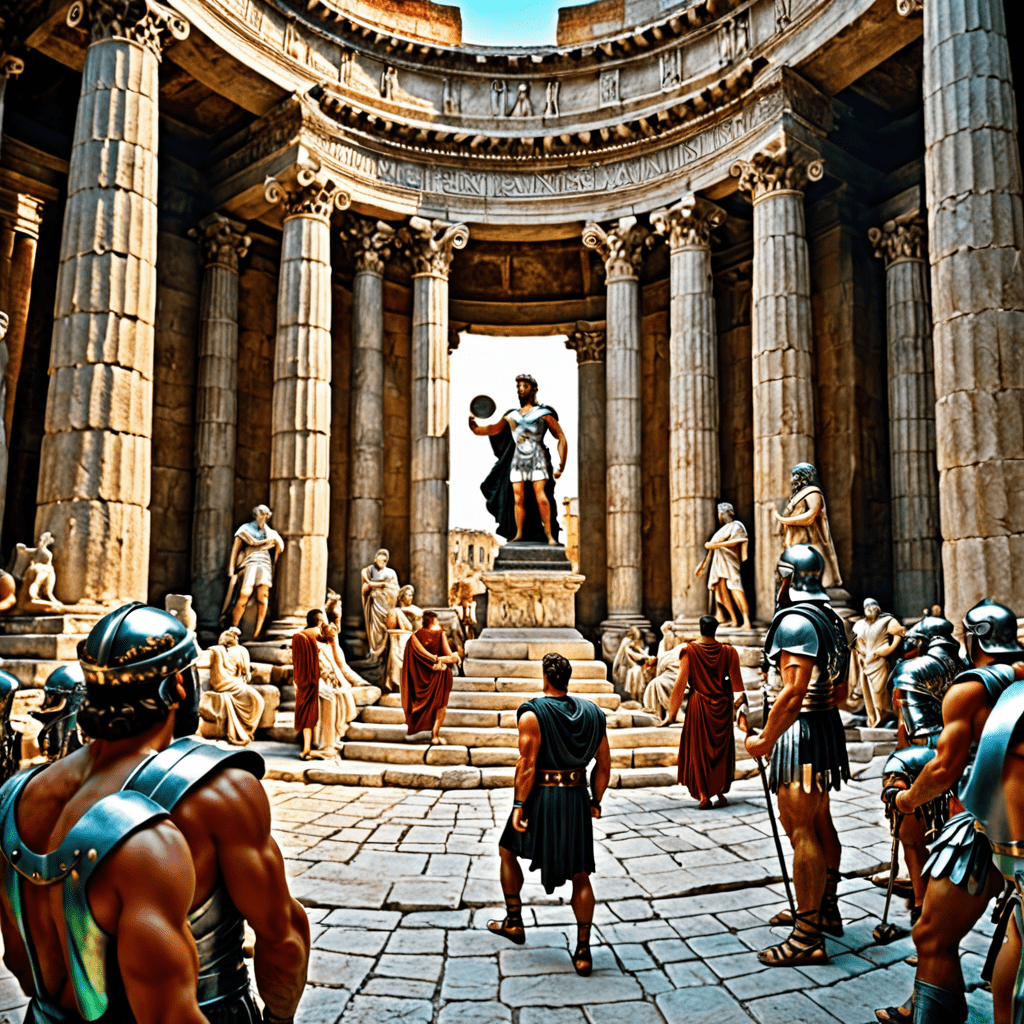Slavic Mythology: Beings of the Fire
I. Introduction
The Slavs, a diverse group of people inhabiting Eastern and Central Europe, have a rich mythology steeped in the elements of nature. Among these elements, fire holds a prominent place, both symbolically and through the various mythical beings associated with it. This article explores the fascinating world of Slavic fire mythology, detailing the deities, spirits, and creatures connected to this primal force.
II. Fire in Slavic Culture
Fire has played a crucial role in Slavic culture throughout history. Slavic peoples revered it as a sacred element, a symbol of purification, warmth, and hearth and home. The hearth was considered the heart of the household, where meals were prepared, and families gathered. Fire also served practical purposes, such as providing light, warmth, and protection against predators.
III. Fire Deities
Slavic mythology features several deities associated with fire. The most prominent among them is Agni, the god of fire, hearth, and home. Agni is depicted as a strong and benevolent deity who protects the household and brings good fortune. Other fire deities include Žar-ptica (Firebird), a mythical bird associated with prosperity and good luck, and Kupala, the god of the summer solstice, whose festival involves bonfires and rituals centered around fire.
IV. Fire Spirits
In addition to deities, Slavic mythology also includes various fire spirits. The most well-known is the Ognjenik, a benevolent spirit that appears as a small, fiery creature. Ognjeniks are often associated with the hearth and are believed to bring good luck and prosperity to the household. Other fire spirits include the Zduhać, a mischievous spirit that can cause mischief by playing tricks on people, and the Vijećnica, a female spirit associated with whirlwinds and storms.
V. Fire Birds
Slavic mythology features several mythical birds associated with fire. The most prominent among them is the Firebird (Žar-ptica), a magical creature with bright plumage and the ability to bring good fortune to those who possess it. The Firebird is often depicted as a symbol of hope and renewal and is said to inhabit distant lands beyond the reach of mortals. Other fire birds include the Sirin, a bird with a beautiful voice that can beguile listeners, and the Alkonost, a bird associated with peace and tranquility.
VI. Fire Animals
Slavic mythology associates certain animals with fire. The most well-known is the Fire Horse (Ognjeni Konj), a mythical creature that symbolizes strength and speed. The Fire Horse is often depicted as a fiery steed that can gallop through the flames unscathed. Other fire animals include the Fire Dog (Ognjeni Pas), a faithful and protective creature, and the Fire Snake (Ognjena Zmija), a serpent that represents wisdom and danger.
VII. Fire Demons
In addition to benevolent beings, Slavic mythology also includes malevolent fire demons. The most prominent among them is Černobog, the god of darkness and evil, who is associated with destructive fires. Other fire demons include the Vukodlak, a werewolf-like creature that is said to be immune to fire, and the Vila, a female demon associated with whirlwinds and storms.
VIII. Fire Rituals
Fire played a significant role in Slavic rituals and celebrations. The most important fire ritual was the Kupala Night festival, held during the summer solstice. This festival involved bonfires, dancing, and rituals centered around fire. Other fire rituals include the Koleda festival, held during the winter solstice, and the Maslenitsa festival, which celebrates the end of winter.
IX. Fire and the Supernatural
In Slavic folklore, fire is believed to possess supernatural powers. It is said that fire can ward off evil spirits, purify objects, and grant wishes. Fire is also associated with divination and prophecy, with people using flames to interpret omens and predict the future.
X. Conclusion
Fire holds a central place in Slavic mythology, embodying both benevolent and malevolent forces. From fire deities and spirits to fire birds and animals, the Slavs believed that fire played a vital role in their lives, shaping their beliefs, rituals, and worldview. Understanding the significance of fire in Slavic mythology provides a glimpse into the rich tapestry of beliefs and traditions that shaped the culture of this fascinating group of peoples.
FAQ
What is the most important fire deity in Slavic mythology?
Agni is the most prominent fire deity in Slavic mythology, representing the god of fire, hearth, and home.
What is the Kupala Night festival?
The Kupala Night festival is the most important fire ritual in Slavic culture, held during the summer solstice and involving bonfires, dancing, and rituals centered around fire.
What is the significance of the Fire Horse in Slavic mythology?
The Fire Horse symbolizes strength and speed and is often depicted as a fiery steed that can gallop through the flames unscathed.
How is fire used in Slavic divination?
Fire is believed to possess supernatural powers in Slavic folklore, including the ability to ward off evil spirits, purify objects, and grant wishes. It is also used for divination and prophecy, with people using flames to interpret omens and predict the future.
What are some examples of fire demons in Slavic mythology?
Černobog, the god of darkness and evil, Vukodlak, a werewolf-like creature immune to fire, and Vila, a female demon associated with whirlwinds and storms, are some examples of fire demons in Slavic mythology.



